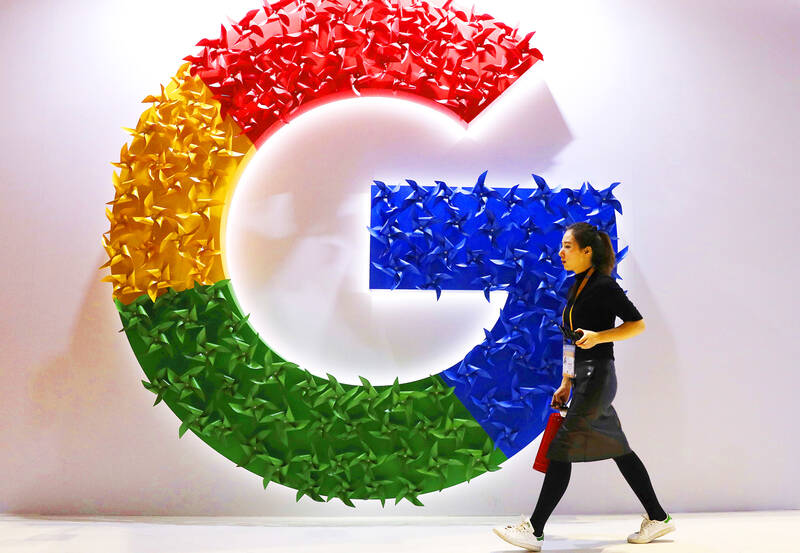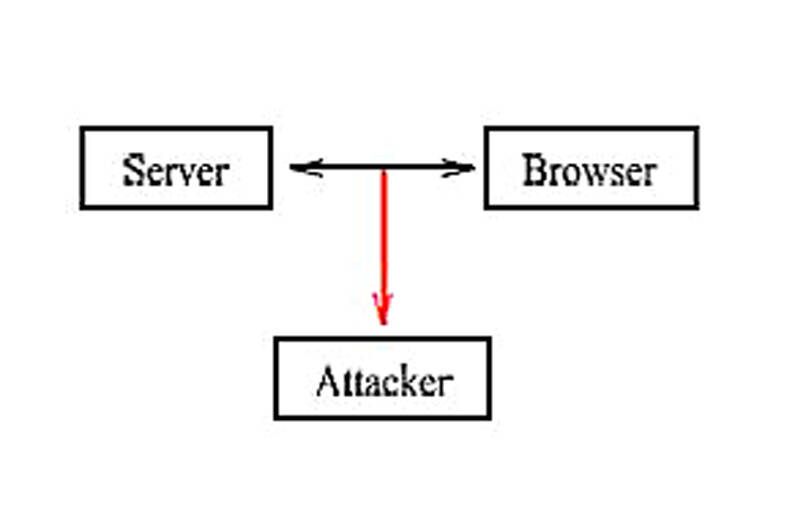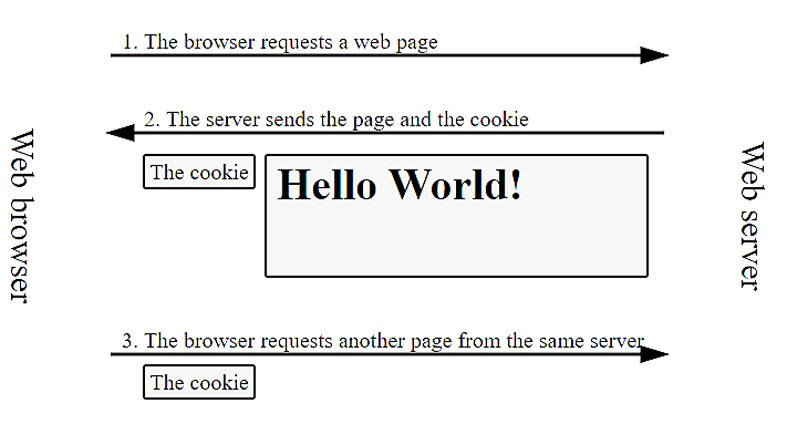Google is planning to keep third-party cookies in its Chrome browser, it said on July 22, after years of pledging to phase out the tiny packets of code meant to track users on the Internet.
The major reversal follows concerns from advertisers - the company’s biggest source of income - saying the loss of cookies in the world’s most popular browser will limit their ability to collect information for personalizing ads, making them dependent on Google’s user databases.
The UK’s Competition and Markets Authority had also scrutinized Google’s plan over concerns it would impede competition in digital advertising.

Photo: AP 照片:美聯社
“Instead of deprecating third-party cookies, we would introduce a new experience in Chrome that lets people make an informed choice that applies across their web browsing, and they’d be able to adjust that choice at any time,” Anthony Chavez, vice president of the Google-backed Privacy Sandbox initiative, said in a blog post.
Since 2019, the Alphabet unit has been working on the Privacy Sandbox initiative aimed at enhancing online privacy while supporting digital businesses, with a key goal being the phase-out of third-party cookies.
Cookies are packets of information that allow Web sites and advertisers to identify individual Web surfers and track their browsing habits, but they can also be used for unwanted surveillance.

Photo: Free Software Foundation / Wikimedia Commons 照片:Free Software Foundation /維基共享資源
In the European Union, the use of cookies is governed by the General Data Protection Regulation (GDPR), which stipulates that publishers secure explicit consent from users to store their cookies. Major browsers also give the option to delete cookies on command.
Chavez said Google was working with regulators such as the UK’s CMA and Information Commissioner’s Office as well as publishers and privacy groups on the new approach, while continuing to invest in the Privacy Sandbox program.
The announcement drew mixed reactions.

Photo: Tizio / Wikimedia Commons 照片:Tizio /維基共享資源
“Advertising stakeholders will no longer have to prepare to quit third-party cookies cold turkey,” eMarketer analyst Evelyn Mitchell-Wolf said in a statement.
Lena Cohen, staff technologist at the Electronic Frontier Foundation, said cookies can lead to consumer harm, for instance predatory ads that target vulnerable groups. “Google’s decision to continue allowing third-party cookies, despite other major browsers blocking them for years, is a direct consequence of their advertising-driven business model,” Cohen said in a statement.
(Reuters)

Photo: Tizio / Wikimedia Commons 照片:Tizio /維基共享資源
谷歌在7月22日表示,將在其Chrome瀏覽器中保留第三方 cookie。之前谷歌承諾逐步淘汰這種用於追蹤網路使用者的小資料包已有多年。
這一重大轉變,是因廣告商(谷歌最大的收入來源)擔心,失去Chrome這世界上最受歡迎的瀏覽器中的cookie,將使他們收集資訊以提供個人化廣告的能力受到限制,得要依賴谷歌的用戶資料庫。
英國公平競爭及市場管理局也對谷歌的計畫進行了審查,擔心它會妨礙數位廣告的競爭。
「我們不會棄用第三方cookie,而是會在Chrome中引入一種新體驗,讓人可在知情的狀況下做出選擇,並適用整個網路瀏覽,且可隨時調整該選擇」,谷歌的「隱私沙盒」計畫副總裁安東尼‧查維斯在一篇部落格文章中表示。
自2019年以來,母公司為Alphabet的谷歌一直在發展隱私沙盒計畫,目的在於加強線上隱私,同時支援數位業務,主要目標是逐步淘汰第三方cookie。
cookie是資料封包,可讓網站及廣告商識別網路瀏覽者個人,並追蹤其瀏覽習慣,但也可用於有害的監視。
在歐盟,cookie的使用受《一般資料保護規則》(GDPR)管轄,規定發布商必須獲得使用者明確的同意才能儲存其cookie。主流瀏覽器還須提供以指令刪除cookie的選項。
查維斯表示,谷歌正與英國公平競爭及市場管理局與資訊專員辦公室等監管機構,以及發布商及隱私團體就新方法進行合作,同時繼續投資隱私沙盒計畫。
此項宣布引起了不同的反應。
市場研究公司eMarketer 分析師艾芙琳‧米契爾-沃爾夫透過聲明表示:「廣告利益相關者將不再需要準備斷然放棄第三方cookie」。
電子前哨基金會技術專家蓮娜‧柯恩表示,cookie可能會造成消費者受害,例如針對弱勢族群的掠奪性廣告。柯恩在一份聲明中表示:「雖然其他主要瀏覽器多年來一直阻止第三方cookie,但谷歌仍決定繼續允許第三方cookie,這是其廣告驅動型商業模式的直接影響」。
(台北時報林俐凱編譯)

Denmark’s state-run postal service, PostNord, announced that it would cease letter deliveries at the end of 2025 due to the impact of digitalization. As 95% of its residents now use the Digital Post service, Denmark has seen a 90% decline in letter volumes since 2000, from 1.4 billion to 110 million last year. On top of that, the Postal Act of 2024 removes the government’s obligation to provide universal mail service and puts an end to postal exemptions from value-added tax, raising the cost of a single letter to 29 Danish krone (US$4.20). As a result, PostNord is switching

Bilingual Story is a fictionalized account. 雙語故事部分內容純屬虛構。 “One DA-BEI... WU LONG... NAI?” Yujing smiled as the foreigner struggled to order. He looked like an embarrassed puppy. She repeated the order in Chinese, then English: “Oolong milk tea, large size. Half sweet, no ice?” she said gently. He beamed — the kind of full-face, sunshine smile that Latinos are famous for. “Yes! That! You are... lo maximo… the best!” After he left, Lily nudged her. “Nice save. You’re getting the hang of it.” Yujing had taken this summer job at the bubble tea shop to build confidence and get work

When you think of the Netherlands, images of tulips, windmills, and iconic wooden shoes — known as “Dutch clogs” — may come to mind. These traditional shoes are rich in cultural significance. For centuries, Dutch clogs have been admired for their sturdy design and impressive craftsmanship, making them a fascinating symbol of Dutch heritage. Dutch clogs date back to the Middle Ages. During that time, farmers and laborers needed durable shoes to cope with the region’s damp and unpredictable climate and topography. Crafted from solid wood, such as willow or poplar, clogs offered outstanding protection. Their firm structure kept

Although sending you an SMS (Short Message Service) verification code provides some security, many apps now use code-generating apps and two-factor authentication instead. But more recently, passkeys now use a biometric approach to logging in. Biometrics can offer an even more secure alternative. Following this trend, Google is reportedly planning to replace SMS verification codes with “QR code” scanning. SMS codes are currently used to verify user identity and prevent fraudsters from creating fake Gmail accounts to distribute spam. However, these codes present several challenges. They can be phished through suspicious links, and users may not always have access